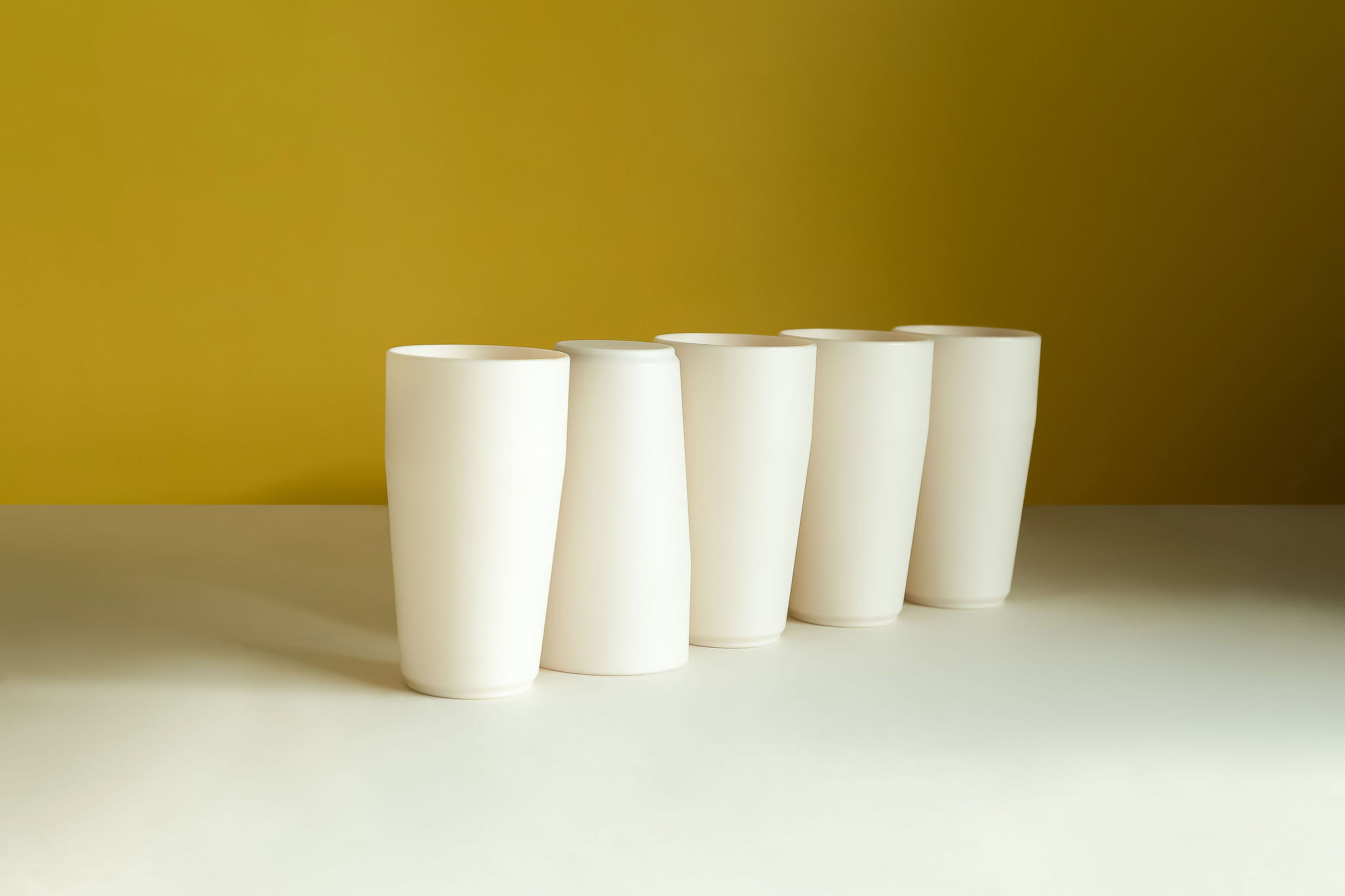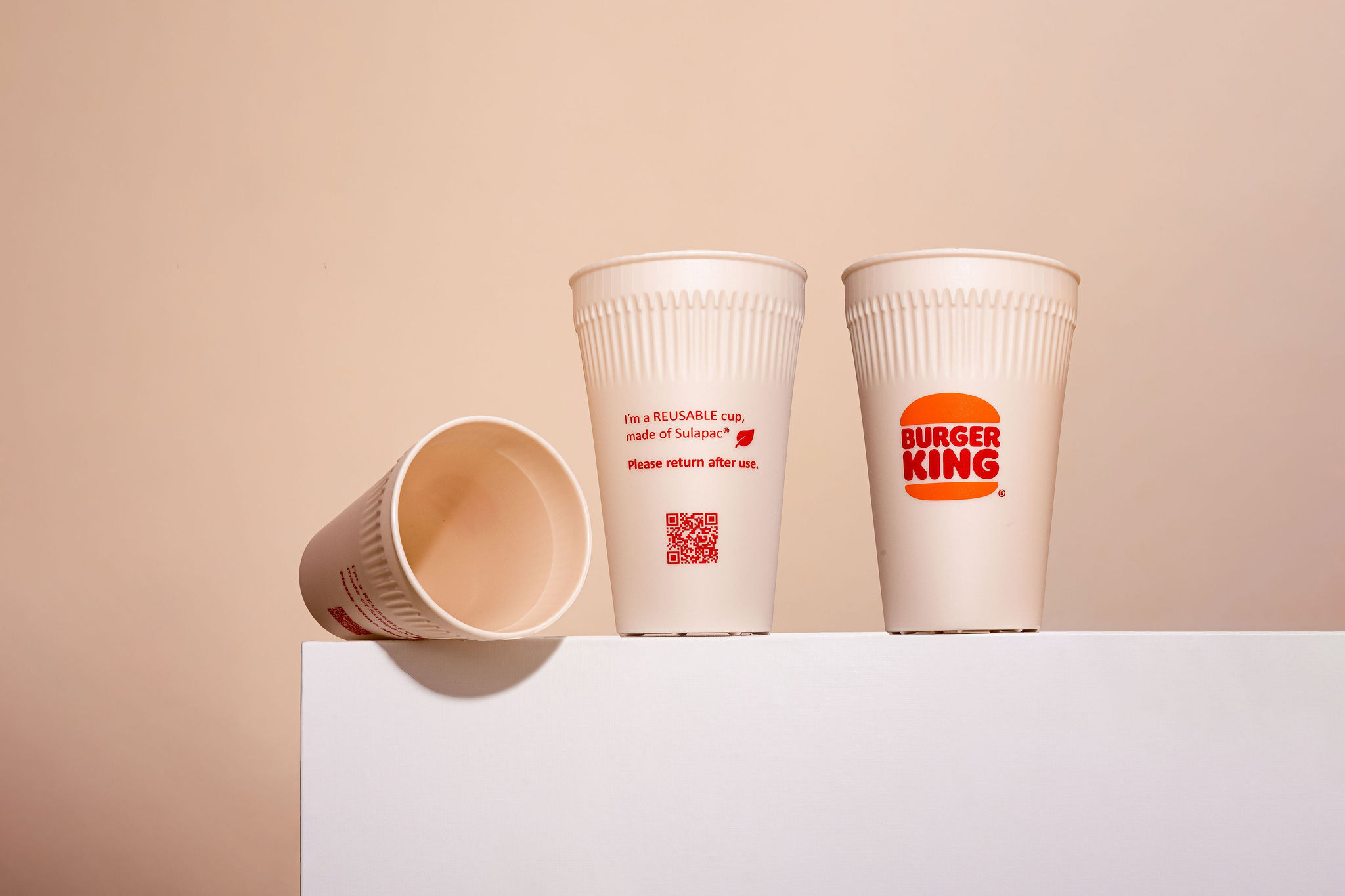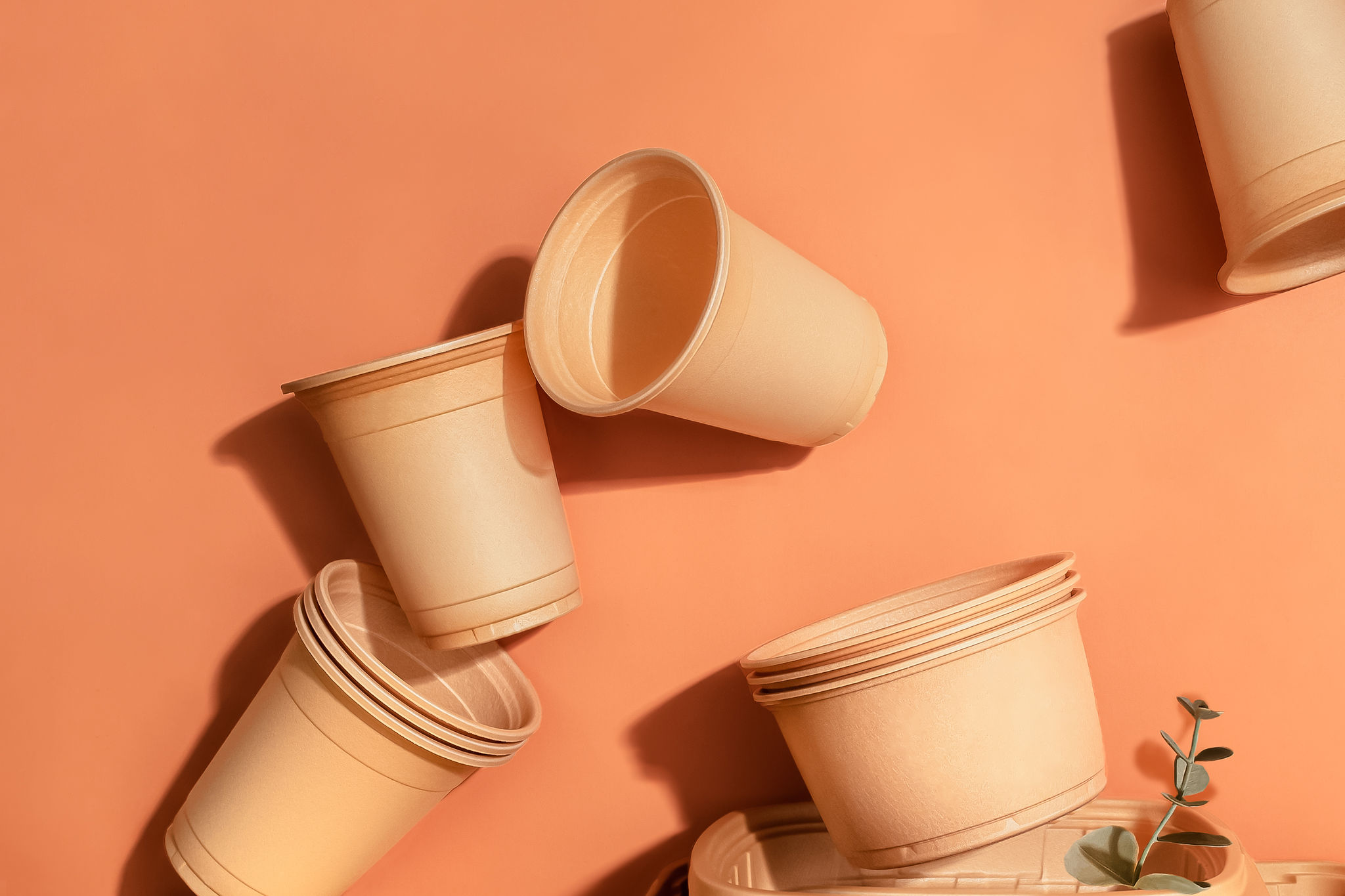How to make summer festivals more sustainable by saying goodbye to single-use plastics
Festival season is here again! As summer hits the Northern Hemisphere, many of us will be heading out to enjoy the mix of sun and live music that festivals offer. But all that summer fun can come with an environmental price tag attached. Many festivals are now working towards cutting the carbon footprint of their events – especially in the area of drinking cups. So, let’s find out how replacing single-use plastic cups with reusable and recyclable ones made from sustainable materials is helping to reduce the footprint of every festive sip.

Festivalgoers expect sustainable action
Festivals’ environmental impact has come under increasing scrutiny. For festivalgoers, event organizers must be perceived as taking sustainability seriously. One study has shown that 81 percent of festivalgoers expect festivals to deal with the environmental impacts of festivals.
This same study highlighted a particular concern for festivalgoers: single-use plastics. Overall, 25 percent of festivalgoers considered reducing single-use plastics to be a priority. This concern led to one in two festivalgoers purchasing refillable cups at festivals.
So, the demand for reusable, sustainable solutions is clearly present among festivalgoers.
Why single-use plastics spoil the festival fun
But what’s the issue with single-use plastics at festivals, anyway? Well, there are several areas of concern, including
- Plastic waste: Single-use plastics are inherently disposable. This means all those cups and straws often end up as litter, sometimes polluting also the natural environment. For example, microplastics can end up contaminating bodies of water.
- Incineration and landfill: Even if all that single-use plastic waste is collected, it may be destined for landfills or burned in incinerators, releasing more CO2 emissions into the environment.
- Carbon-intensive production: The carbon footprint of single-use plastics often begins before a single festivalgoer even sips from a cup. Traditional plastics, derived from non-renewable fossil feedstock, usually require substantial energy in the manufacturing process. This produces greenhouse gases.
- Poor recyclability: A truly circular model is impossible to achieve with polypropylene (PP) or polystyrene (PS) cups, which can be recycled very limited times and typically get down cycled into lower quality products.
- Harmful chemicals: For example PET cups can leach antimony and become carriers of persistent organic pollutants.

Sustainability with every sip
To level up festivals’ sustainability credentials, sustainable replacements must be found to petroleum-derived single-use plastic cups. The good news is that this replacement is already on the market.
Sulapac Solid is a sustainable plastic replacement made from 100 percent bio-based material. Cups made from Sulapac Solid can be washed around 200 times, making them perfect for festivals where washing facilities are available. The reusable cups also make great replacements at events where, for safety and convenience, porcelain or glass are not viable options.
Imagine you’re at your favorite summer festival. You could spend all day in the sun, stay hydrated without generating any waste!
Sulapac eco-cups lower festivals’ emissions, waste and plastic pollution
By choosing reusable, dish washable, biobased drinking cups made from Sulapac Solid, festivals can immediately cut some of the environmental impacts of beverage consumption at events. Here are a few of the most significant benefits to festivals:
- Lower carbon footprint: If a cup is reused only six times, it already provides CO2 savings compared to single-use. In addition, Sulapac’s bio-based cups are made from sustainably sourced materials, cutting dependence on oil-based feedstock and helping lower CO2 emissions related to production.
- Preventing microplastic pollution: Unlike single-use plastics, which often degrade into microplastics, Sulapac’s compostable cups never release microplastics at any stage of their lifespan.
- Waste reduction: This one’s a no-brainer. Washable cups designed to be reused hundreds of times generate less waste than a cup that becomes waste after one use.

Brands also benefit from sustainable drinking cups
Of course, festivalgoers are not the only ones present at festivals. Brands also flock to large events, and it’s only natural that they want to be noticed and present themselves in the most aesthetically appealing way.
The good news for brands is that Sulapac Solid, thanks to its customizability, offers a wide range of branding possibilities. Colors, logos and text are all flexible with this material. Sulapac cups also have a luxurious feel that’s a level up from the feel of ordinary single-use plastic cups. So, for high-end events, these eco-cups are a natural choice that gives a touch of sustainable elegance.
Renowned brands are already using Sulapac’s eco-cups. Just look at this collaboration with Burger King in Finland!

What about non-reusable but still sustainable eco-cups?
There may be some festivals or events where large-scale washing of reusable cups is simply not possible. This could be because of a lack of facilities or insufficient space. But fear not. Sulapac can also offer sustainable drinking cups for this scenario.
Sulapac’s sustainable wood-based material Sulapac Flow 1.7 can be used for thermoformed single-use cups. They offer logistical advantages to festival organizers as the cups are very light, making them easy to transport and store. This makes the cups perfect for events where space is limited.
Flow 1.7 is biodegradable and fully compostable. That means these cups won’t pollute the environment even if they would end up as litter. Instead, they’ll naturally break down without leaving a single trace of permanent microplastics behind.
Branding and packaging options are flexible, with various color options available. Customized colors are possible too. Thermoformed cups made of Sulapac are also of constant quality. So, if you’re hosting a fancy event and you want to showcase sustainable credentials without lowering your standards, these eco-cups will fit the bill.

Sulapac offers a full circularity with their closed-loop model: reuse-collect-recycle
For festivals and events, Sulapac offers a full closed-loop service for drinking cups. What does this mean?
Well, Sulapac can not only provide drinking cups – but also collect them and organize recycling. This closed-loop service of reusing, collecting, and recycling bio-based eco-cups means festival organizers save a lot of organizational time related to catering. Not to mention cutting reliance on petroleum-based products, reducing plastic waste, and promoting the circular economy.
Closed-loop model for drinking cups is already used at major global events, such as Helsinki’s Slush, the world’s largest gathering of startups and venture capitalists. The closed-loop service is available for both reusable Sulapac Solid cups and single-use Sulapac Flow 1.7 cups.
Here’s to a sustainable summer!
Sulapac Ltd is an award-winning material innovation company bringing solutions to the global plastic crisis. By replacing conventional plastic with sustainable, beautiful, and functional Sulapac materials, companies can reduce their carbon footprint, eliminate microplastic pollution, and advance the circular economy. The Helsinki-based company was founded by three scientists in 2016 and serves customers across various industries on three continents. Investors behind Sulapac®, the patented material innovation, include CHANEL and Sky Ocean Ventures.